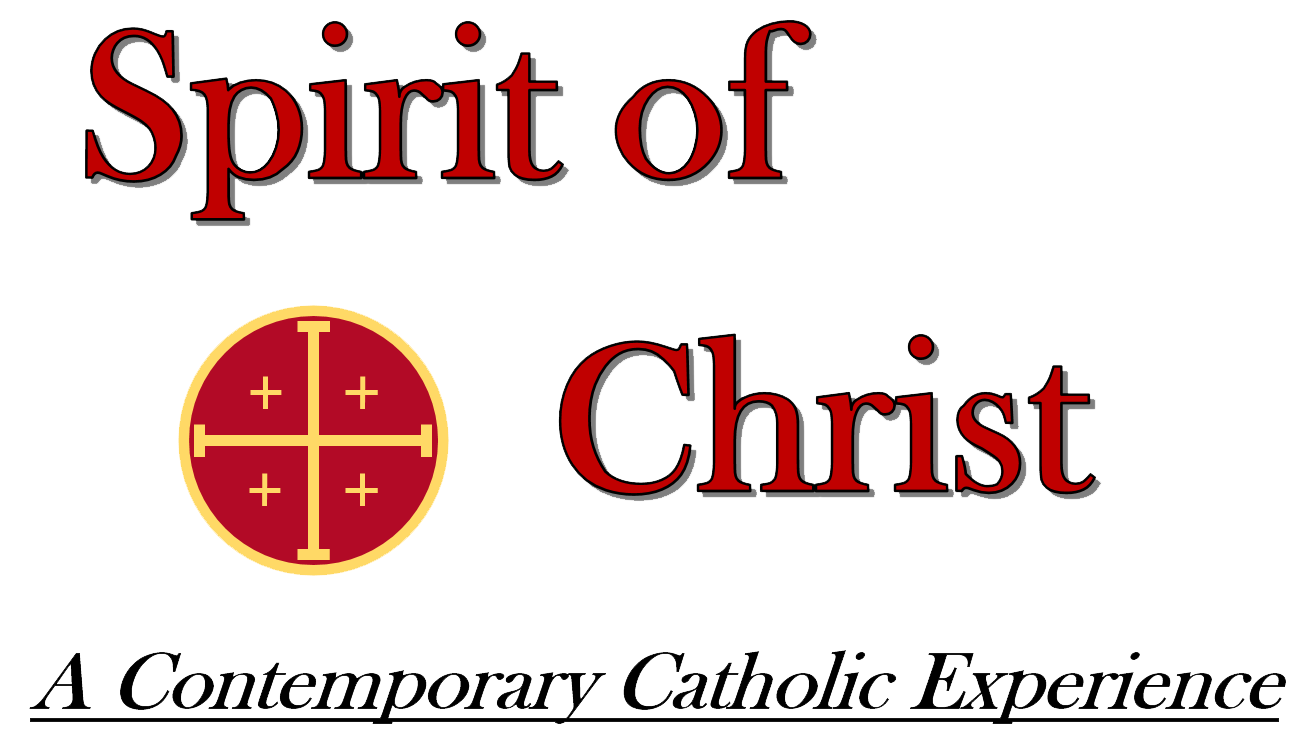WE ARE COMMITTED TO ...
1. Spirit of Christ is one of many Catholic Churches worldwide
There are three essential characteristics of all Catholic denominations. The first is they all have legitimate apostolic succession. They have bishops, priests and deacons. These offices derive their ecclesial legitimacy and authority in a direct line of succession from Jesus Christ and the twelve Apostles. This authority is essential to the claim of orthodoxy for all Catholic Churches.
The second characteristic of Catholicism is the seven sacraments, with the Eucharist as the central sacrament of worship.
The third characteristic is a liturgical calendar which includes the veneration of saints. Regardless of their history, Succession, Sacraments and Saints are the three essential aspects of all Catholic Churches.
2. No excommunications
While excommunication is practiced in many Catholic Traditions, it is not practiced in the Old Catholic Church. Because life has many ups and downs, it is important to walk together in love than exclude people from the sacraments.
3. Fostering a contemporary, open-minded approach modern issues
In general, a conservative church tends to be more black and white in its understanding of revelation. A liberal church tends to recognize the gray areas in modern issues. Spirit of Christ would be considered by most people to be a liberal Catholic Tradition.
As an educated society, each person has the freedom to choose their own destiny. Not only does everyone have the natural right to the freedom of choice in religious matters, but each should be afforded a communal environment where open and stimulating dialogue can enhance one’s understanding of issues and facilitate decisions regarding matters of conscience rather than being told what to do and punished for disobedience.
4. An inclusive community
All people are welcome to be a valued part of this community. Members of all race, color, creed, age, denomination, gender identification, nationality, language, social status, financial status or marital status are invited.
5. Endorsement of LGBTQ relationships
We are a liberal Catholic Tradition. Conservative traditions tend to view revelation as more static and unchanging. Liberal traditions tend to consider how science and culture impact the understanding and interpretation of Scripture.
For example, when scripture was written, the Hebrew culture believed that everyone was created by God as a heterosexual. Sciences has since discovered that God makes a diversity of gender identities.
During the AIDS epidemic numerous studies were done on the brain tissue of gay men. It was discovered that in some cases gay men had female brain tissue instead of male tissue. Thus, there is physical evidence that some gay men are in fact created gay.
Unlike the ancient Hebrew belief, there is significant scientific evidence that God him/her-self is the creator and cause of LGBTQ relationships. Along with many other cultures around the world, the American government has come to recognize that LGBTQ relationships are legitimate and should be recognized as so.
Throughout history, as societies have grown in their understanding of moral issues, societal views have changed. Issues like the communal stoning of sinners, slavery, equality of women, the divine right of kings and basic human rights are all examples of how societies have changed their view of social/moral issues.
Like many other issues in history, our understanding of LBGTQ self-identification and marriage is that it is not an immoral practice. Rather, it should be celebrated.
6. Recognition that divorce causes pain and heartbreak and support is needed for those who choose to rebuild their lives by remarriage
The loss and grief of divorce can leave families devastated emotionally, socially and financially.
Once one is remarried, the shame of returning to church and not being accepted as a full member only adds to the already painfully difficult circumstances of life.
7. Every voice is important
The laity are invited to be a part of the decision-making process at the local parish level, the diocesan level and at the national level.
Our church is structured with a House of Delegates and a House of Bishops. There is an expectation at the national assemblies that there are two lay persons for every clergy representing the various dioceses.
